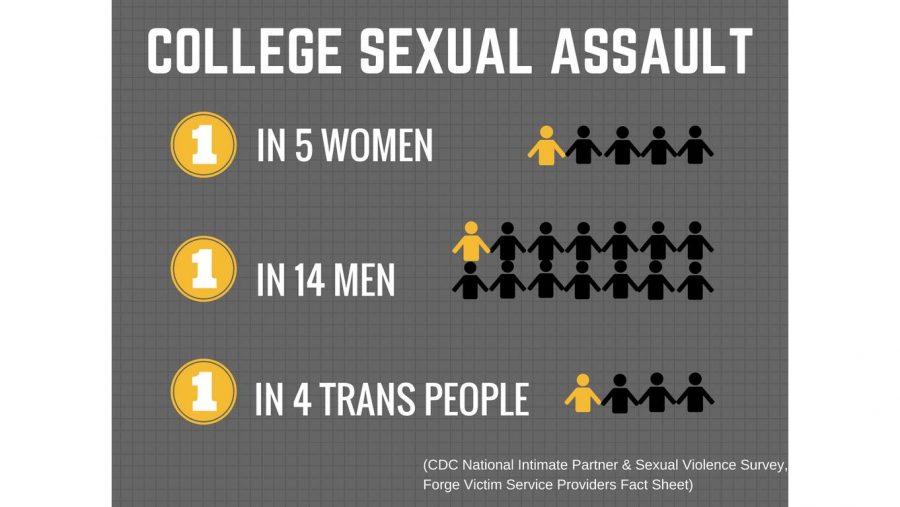We’ve heard the staggering statistics: one in five women, one in 14 men, and one in four trans-identifying individuals experience some form of sexual violence while in college. And yet, earlier this year, the Iowa Legislature approved a 26 percent cut to funding for victim services, inevitably eliminating some services from its budget entirely.
One of the organizations defunded by this decision has roots right here in Iowa City. The Rape Victim Advocacy Program provides 24-hour confidential support for those affected by sexual violence, serving numerous counties in southeastern Iowa through the Iowa Sexual Abuse Hotline. In July, it was hit with a $400,000 budget cut, and it has scrambled to keep running ever since.
This should not be a reality in our state or on our campus, where college-age adults are at a higher risk of sexual violence. Funding confidential resources for assault survivors should be a top priority for all Iowans — especially those with the power to create legislative change, for better or worse.
RVAP Executive Director Adam Robinson said power control is at the core of sexual violence; it can be triggering, or even re-traumatizing, for survivors to seek help and then be thrown into systems, legal or medical, that they won’t have immediate jurisdiction over. The Iowa Sexual Abuse Hotline fills the void of support for survivors who don’t have the desire to formally report their trauma by giving them a safe space in which to discuss their experience. Robinson said the hotline allows people to reach out for help just because they deserve help.
Iowa legislators assert that their decision to cut funding for the Iowa Sexual Abuse Hotline and two other programs was made after exhausting all other options, but they should have known this outcome was inevitable after voting to slash funding for victim services by 26 percent. The behavior either shows a complete lack of fiscal responsibility or a gross display of negligence toward some of the most vulnerable people in our communities. Since July 1, the Iowa Sexual Abuse Hotline has had to let go of 11 part-time hotline advocates. By the end of this month, it will be short an additional four full-time employees. This has inevitably, and at least temporarily, as Robinson hopes, lowered its capacity for work.
Because this is a funding issue, let’s talk about how much sexual violence costs the state of Iowa each year. In 2009, the combination of costs ranging from subsequent STIs, pregnancy, substance abuse, suicides, etc., amounted to a staggering $5.8 billion — that’s almost $1,875 per resident (criminal-justice costs accounting for just 1 percent). While state legislators have managed to shave $1.5 million from their budget, they may have set themselves up for more financial trouble in the long run. In addition to the emotional support and resource referrals the Iowa Sexual Abuse Hotline provides, the lost funds have also supported services that provide housing assistance, safety planning for families, and violence-prevention programs for schools. If these services disappear, only time will tell the fiscal and social impact of their absence.
Of course, it shouldn’t take a conversation about saving money for Iowa lawmakers to understand the value of these services. And while we should work tirelessly until they do, we must also stand in solidarity with our classmates, students, teachers, family, and friends. Robinson said it best toward the end of our interview: “When the messaging from Des Moines or Washington, D.C., sometimes suggests the opposite … that voice is really galvanizing and important for the survivors we have the privilege to support.”



